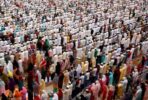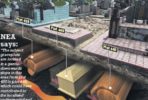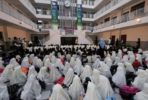As the Thai authorities look for those responsible for Monday’s deadly blast in Bangkok, observers and security analysts were divided as to the motivation and the possible culprits behind what Thai Prime Minister Prayuth Chan-ocha has described as the worst act of violence in the country.
With no one claiming responsibility for the attack that has killed 22 people — including a 34-year-old Singaporean — at Erawan Shrine and left over 100 injured, Thai authorities have been careful not to point the blame in any direction.
“We’re looking at all angles. We’re not dropping off any possibilities yet,” Dr Panitan Wattanayagorn, a prominent Thai security expert and adviser to Deputy Prime Minister Prawit Wongsuwan, told TODAY in a phone interview. “The priority is to make sure this investigation is open and very professional.”
While Dr Panitan cautioned against any speculation on the motive, he said the attack was aimed at destabilising the country and its economy. The incident is the latest in a series of explosions that have disrupted South-east Asia’s second-largest economy since the military seized power in May last year, and it was no surprise that the experts’ initial assessment was that it was linked to Thailand’s decade-long political turmoil.
The Thai authorities had blamed supporters of former Prime Minister Thaksin Shinawatra, who call themselves the “red shirts”, for recent attacks in the capital, including two pipe bomb attacks on a luxury mall in February, which injured two persons, and a grenade attack at the Criminal Court a month later, which damaged the property without causing any injuries.
A suspect in the March incident had reportedly told the police that a network of red shirts had discussed a plot to bomb at least 100 places in Bangkok in a string of attacks against the ruling junta.
“I think it’s pretty obvious which element is behind this,” a Thai politician who has held senior positions in government told TODAY. “It’s the same pattern … If I’m a betting man, I would place my money on hired militants linked to the red shirts.”
However, some observers noted that Monday’s attack marked a shift from past outbreaks of political violence, as the bomb was aimed to kill and tourists were deliberately targeted along with Thais.
“Past explosions were meant more to send a political message and not to harm,” said an editor of a major newspaper in Thailand who did not want to be named. “But this time, the bomb was planted to inflict maximum damage to civilians.”
This lends weight to the theory that the attack could be linked to international terrorism, he added.
Police chief Somyot Pumpanmuang said he did not rule out any motives, including Thailand’s controversial repatriation of 109 Uighur people to China recently, which sparked an attack last month on the Thai consulate in Istanbul, Turkey.
There is also speculation of the possible involvement of insurgents from Thailand’s southern provinces, where violence linked to Malay-Muslim separatists has seen over 6,000 people killed in the past decade.
But observers note that there does not seem to be any reason for the insurgents to stage an attack outside the southern provinces. Thai army chief, General Udomdej Sitabutr, has also said the latest blast “does not match” past attacks in southern Thailand.
Security experts however, agree on one thing: The high number of casualties and the way improvised explosive devices were used show that those responsible for the attack had professional training not only in bomb-making, but also bomb-radius measurements, placement and detonation.
When asked if it was easy to obtain bomb-making materials in Thailand, Dr Panitan said: “In general, we do have some problems controlling some of these materials and devices. Some can be obtained from the industry.”
Observers said it is hard to predict whether there would be more attacks.
“After several months of relative calm in the capital, the main impact on Thailand is that certain elements are willing to fund open protests, demonstrations and bombings to oppose policies that they believe are unfavourable,” said Associate Professor Antonio Rappa, head of UniSIM’s Management and Security Studies. “The greatest danger is that more innocent people may lose their lives.”
Source: www.todayonline.com







